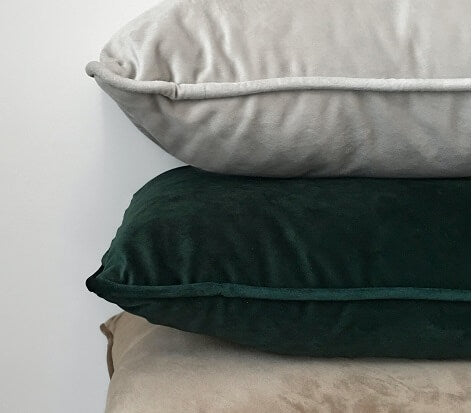The question on many sleep enthusiasts' minds today is, "do shaped pillows offer good support for your neck?" To put it bluntly, a night of peaceful sleep can easily be disrupted by neck discomfort, which can, in turn, affect your overall well-being. Therefore, getting the right kind of support for your neck is an essential aspect of achieving quality sleep. Let's delve into the truth about neck support and whether shaped pillows indeed offer comfort.

Understanding the Importance of Neck Support in Sleep
During the substantial hours we dedicate to sleep in our lives, it's crucial to ensure proper posture to ward off long-term health complications, especially those pertaining to the neck and spine. A lack of adequate support for your neck during sleep can pave the way for issues like neck pain, recurring headaches, and in worst-case scenarios, conditions like degenerative disc disease. Ensuring the right support for your neck while you sleep not only helps keep it aligned with the rest of your body but also lessens the strain on your muscles and joints. This proactive measure can play a significant role in preventing health problems and maintaining your overall well-being. Therefore, the issue of whether shaped pillows offer good support for your neck isn't merely about comfort - it also has profound implications for health in the long run.
What Exactly are Shaped Pillows?
You might be wondering, what sets shaped pillows apart from the standard ones we often see in households? Essentially, shaped pillows are specifically engineered with a unique design to support specific parts of the body, including the neck. These are not your ordinary, flat, rectangular pillows. Shaped pillows bear a distinctive contoured and elevated design aimed at enhancing the alignment of the neck, thereby potentially providing superior neck support.
Today's market is awash with an array of shaped pillows, each designed with a specific purpose in mind. For instance, contour pillows are designed to mold to the shape of your head and neck, offering personalized comfort and support. Cervical pillows, on the other hand, have a curved design that aligns with the natural curve of your neck to relieve pressure and promote proper alignment. Orthopedic pillows are also an option, designed by experts to correct body positioning in bed or while lying on any other surface.
Regardless of the specific design, the primary goal of shaped pillows is to provide a more customized and targeted approach to body support during sleep. By catering to individual needs, they aim to enhance comfort and health benefits, especially in terms of neck support. It's worth noting, however, that the effectiveness of these pillows often depends on various factors, such as the user's specific requirements and preferred sleeping positions.
The Benefits of Using Shaped Pillows
Shaped pillows, with their unique design and tailored support, bring numerous advantages to the table. One of the key benefits is the ability to maintain the right alignment of the neck with the rest of the body during sleep. This results in improved sleep quality, as well as a reduced risk of long-term health complications related to poor sleep posture.
Another significant advantage of shaped pillows lies in their potential to alleviate snoring. By ensuring optimal positioning of the head and neck, these pillows help keep airways unobstructed, thus mitigating snoring issues.
For individuals suffering from acid reflux, shaped pillows can provide substantial relief. By slightly elevating the head, these pillows can help control the reflux, leading to a more comfortable and less disturbed sleep.
Finally, one of the most appealing benefits of shaped pillows is their ability to minimize morning stiffness or soreness. By providing optimal support and alignment for the neck and shoulders, they can reduce the chances of waking up with muscle strain or discomfort.
In essence, shaped pillows go beyond just providing support for your neck - they offer a range of benefits aimed at improving sleep quality and promoting overall well-being. However, the effectiveness of these pillows is often dependent on various factors, including the individual's specific needs and sleeping habits.

Evaluating the Comfort of Shaped Pillows
Determining if shaped pillows offer satisfactory comfort is largely subjective. While they boast a number of health benefits, the comfort level of shaped pillows is not a one-size-fits-all situation. There are individuals who find the distinctive firmness and contouring of these pillows as a beneficial enhancement to their sleep. Conversely, others might perceive this unique design as unusual, and at times, uncomfortable.
The comfort level of a shaped pillow isn't solely dictated by its design, but also the quality of its construction. A high-quality, well-crafted shaped pillow is likely to deliver a higher level of comfort compared to a poorly constructed one. This reiterates the importance of investing in a quality product to reap the maximum benefits, in terms of both comfort and health benefits.
When evaluating the comfort of shaped pillows, it's crucial to keep in mind that 'comfort' is a highly individual perception, influenced by various personal factors such as body shape, preferred sleeping position, and even specific medical conditions. It's also important to give yourself time to adjust to the new pillow - comfort may not be instantaneous, and it may take several nights for your body to adapt to the new support structure.
In the end, when it comes to comfort, personal preference reigns supreme. What may feel like a dream to one person might not suit another. That's why it's important to try out different shaped pillows, keeping your personal needs and preferences in mind, before making a final choice.
Selecting the Right Shaped Pillow for You
Choosing the best shaped pillow for you may seem daunting, but it doesn't have to be. It's a process that involves thoughtful consideration of your unique needs and preferences. One of the critical factors to consider is your favored sleeping position. Side sleepers might benefit from a pillow that fills the space between their shoulder and neck, while back sleepers might prefer a pillow that supports the natural curvature of the neck. Stomach sleepers, on the other hand, may opt for a softer, thinner pillow to avoid neck strain.
Equally important is the material of the pillow. Some people might find memory foam more comfortable due to its contouring ability, while others might prefer latex for its firmness and resilience. Don't overlook the importance of the pillow's cover, either - choose a fabric that's soft, hypoallergenic, and easy to clean.
Lastly, don't neglect your personal comfort preference. While a shaped pillow may provide many health benefits, it should also feel comfortable to you. Be open to trying out several different pillows, noting how each one feels in terms of comfort, support, and overall sleep quality.
Remember, the ultimate goal is to find a pillow that supports your neck adequately, enhances your sleep quality, and feels comfortable to you. It's a personal decision that only you can make, so take your time, do your research, and don't be afraid to invest in your sleep health.






